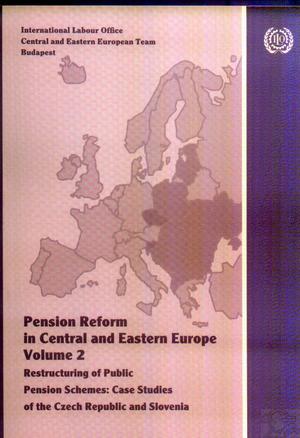Pension Reform in Central and Eastern Europe -2-
İÇİNDEKİLERTable of Contents Foreword Chapter 1 Introduction: Explaining Pension Reform Katharina Mutter References Chapter 2 The Political Economy of Pension Reform in Slovenia Tine Stanovnik 1. The legacy: Old-age security before 1990 1.1. Developments to the mid-1980s 1.2. New concepts in the late 1980s 2. Old-age security in transformation, 1990-2000 3. Explaining post-socialist pension politics 3.1. Developments in the early 1990s 3.2. The White paper 3.3. After the White paper - the demise of the mandatory second pillar 3.4. Parametric reform and the voluntary second pillar 3.5. Parallel developments - a new pension fund and the'privatization gap' 3.6. Public opinion polls 4. The actors and their roles in the pension reform process 4.1. Domestic actors 4.2. External actors 4.3. The actors and the reform stages 4.4. Deliberative forums 5. Conclusions Appendix A: Interviews Appendix B: ReferencesChapter 3 The Political Economy of Pension Reform in the Czech Republic Martin Mdcha 1. The legacy: old-age security before 1990 2. Old-age security in transformation: 1990-2000 2.1.. The public pension scheme 2.2. The supplementary private pension scheme 2.3. Latest developments and reform proposals 3. Explaining post-socialistic pension policy 3.1. The federal period of Czechoslovakia 3.2. Moving towards in-depth transformation 3.3 Approaching the economic crisis 3.4. The social democratic government 3.5. Prospects 4. Stages of reform and the role of different players in the pension reform process 5. Conclusions: problems and policy choices Appendix A: Background interviews with key reform figures Appendix B: References Chapter 4 Between State and Market: Czech and Slovene Pension Reform in Comparison Katharina Muller References TABLES The Political Economy of Pension Reform in Slovenia Table 1 System dependency ratio, pension expenditures and replacement rates, 1970-1989 Table 2 Actual retirement age by gender, 1992-2000 Table 3 Active insured persons and pensioners, 1990-2000 Table 4 System dependency ratio, pension expenditures and replacement rates, 1990-2000 Table 5 Revenues and expenditures of the Institute for Pension and Disability Insurance (% of GDP) Table 6 Population, population structure and old-age dependency ratio, 1953-2001, with projections up to 2020Table 7 Fiscal balance and public debt of Slovenia, 1992-2000 (%of GDP) Table 8 Basic characteristics of the 1983,1992 and 1999 PDIA (eligibility criteria and benefits) Table 9 Pension funds and pension management companies: Accumulated premiums and membership (as of end of October 2001) Table 10 Public opinion polls: 'What trade union organization do you trust most regarding pension reform?' The Political Economy of Pension Reform in the Czech Republic Table 1 Development of various pension system indicators 1960-80 Table 2 Development of various pension and macroeconomic indicators, 1993-2000 Table 3 Development of demographic ratios and system dependency, 1993-2000 Table 4 Old-age pension replacement rate for different wage levels Table 5 Development of old-age pension levels, 1989-2000 Table 6 Development of nominal investment returns, 1995-2000 Table 7 Development of supplementary pension insurance, 19942000 Table 8 Demographic projections, 1995-2030 Table 9 Positions of political figures on pension reform proposals Between State and Market: Czech and Slovene Pension Reform in Comparison Table 1 Slovenia: Selected economic indicators, 1993-2000 Table 2 Czech Republic: Selected economic indicators, 1993-2000 Table 3 Selected demographic indicators, 1999-2015 Table 4 Basic features of the public pension schemes in the Czech Republic and Slovenia Table 5 Basic features of the voluntary supplementary funds in the Czech Republic and Slovenia CHARTS Chart 1 Average portfolio of Czech pension funds Chart 2 Development of transition costs after partial pension privatisation, 2000-30    |



